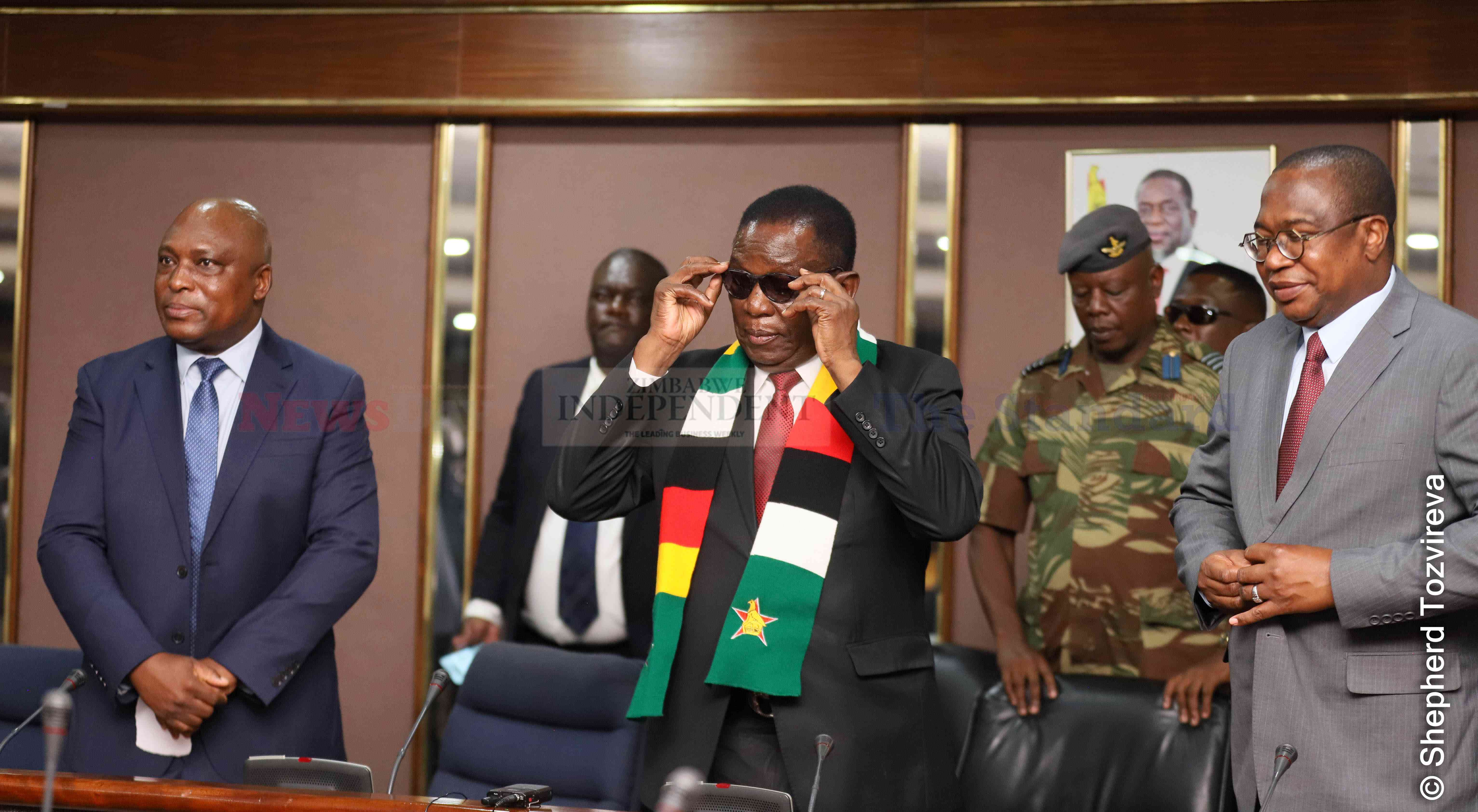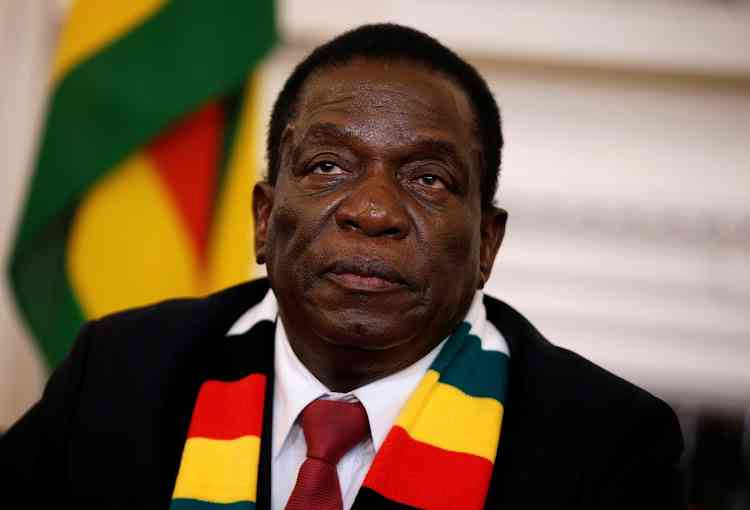
Zimbabweans cannot reasonably expect President Emmerson Mnangagwa’s government to handle the twin challenges of the COVID-19 pandemic and the economy without making mistakes.
However, in times of crisis, even if citizens want their Executive to act decisively, with haste, they still expect informed decisions and perfect foresight.
Within and after the crisis some mistakes will be worse than others.
I think one of the worst mistakes the government is making is on operations of small-to-medium enterprises (SMEs) and lack of a proper economic package to sustain and grow the sector.
To exaggerate just a little, there is nothing much to speak about on this economy in its large corporate nature as one may be fooled from reading the so-called “COVID-19 economic recovery and stimulus package”.
In general, outside the larger number of the unemployed the SMEs is the bedrock of the socio-economic fabric of this country. Without a package skewed in favour of this caste of the economy, I doubt that it’s a genuinely a scientific and value-driven stimulus.
The SME sector is the largest employer and impact the highest number of households.
In most instances, the sector manufactures, distributes and retails everyday needs of households.
- Chamisa under fire over US$120K donation
- Mavhunga puts DeMbare into Chibuku quarterfinals
- Pension funds bet on Cabora Bassa oilfields
- Councils defy govt fire tender directive
Keep Reading
It is on the twin basis that the sector should obtain the most attention and stimulus intervention.
Irrespective of a highlight in the preamble in the COVID-19 economic recovery and stimulus package, the numbers show a paltry $500 million, which is dwarfed by the usual beneficiaries of this government’s largesse, the agriculture and mining sectors.
Crisis is often dichotomous with opportunity. I see creation of a platform of opportunity on the stimulus package by promoting and prospering the usual network of lobbyists and the old industrial complex.
It is also entrenching corrupt opportunism for those with access to certain corridors of power.
The stimulus package has no economic rationale, is not scientific and at a moral level just grossly inhumane. It promotes and entrenches control of the economy to the usual network.
The first and most important stimulus package to SMEs is not money. It is to enable the sector to access business opportunities in COVID-19-related supplies, better access to government tenders, supply lines to quasi-government institutions and re-tooling for manufacture.
It should be about ease-of-doing business to access the benefits associated with the large-scale companies. A stimulus should additionally give incentives for retail to buy local.
An incentive package should involve tax deferrals and low interest loans. The elephant in the room is currency. The package must promote local SMEs to access foreign currency for re-tooling and working capital.
The general public often believes, rightly or wrongly, that the central bank operates its currency allocation system in an opaque manner resulting in it being a piggy bank for just a few. As an example, an informed government must support access to currency for production instead of consumptive fuel.
The continued lockdown of SMEs is not fair and equitable. Unfair because it promotes big business and inequitable in that after prolonged closure, there is no significant package that is alive to longer periods of closure.
There was no scientific basis to justify closure of some economic activities defined as informal, especially if there are no metrics on the nexus of spread of the virus and nature of business.
Even if the nexus is available, though not, preventative measures applicable to big business were not exactly too different to those that apply to the sector.
It was also inhumane to defer the destroying of market stalls without affording families to recover post-COVID-19. A moral competent government builds alternatives before destroying.
The loss of revenue and site for revenue generation could have been avoided to reduce the carnage on household income-generating projects.
The government should be alive that continued closure of SMEs result in accumulation of employment costs, bills, rent and other utilities. A stimulus package should speak to deferral of these costs instead of the arbitrary freezing of just domestic use rentals.
A strategically alive government strategy should have also prioritised on how its largest economic sector can operate just like the formal retailers and manufacturers.
A government will realise that a market is not a place like Mbare, but that it’s nothing more than countless individuals buying and selling, producing and consuming, not only to meet their basic needs but also to live out their vocations.
It shouldn’t be the character of the government to think in straight lines especially in the midst of an economic and human catastrophe.
It’s problematic and economic suicide to close business operations due to a hunch not based on scientific grounds. It is wiser to better the level two lockdown success matrix so that it fits the largest economic sector by bettering the business models.
The government should have invested in building better, healthy, safe and quality market stalls as a separate and decipherable stimulus instead of destroying existing stalls. People don’t desire to be evil. The stalls are driven not only by need, but by actual demand for accessible and affordable products and services
Politicians often mistakenly rely on one form of knowledge to the exclusion of other, equally important forms. Like the teachers in Charles Dickens’s Hard Times, they give us nothing but facts, facts and facts. As political leaders, however, they must decide which facts are relevant, how to present them, and what to do with them.
They cannot dispense with the cardinal virtue of prudence or practical reason. This is so when it comes to over-emphasis on agriculture which had an allocation of over $6 billion. History has taught us better on agriculture stimuli.
Our agricultural sector post-land reform programme has been a perpetual infant requiring being spoon fed. The failure of agriculture is not about money but that the farmers lack time, skill, governance structures, internal control systems, strategy and viable business models.
The ills cannot be solved by money as proposed in the stimulus package. Previous stimulus packages did not yield significant economic outcomes.
In the present economic realities any rationale cell phone farmer is better off buying foreign currency on the alternative market using the stimulus money. The future liquidation of the currency will outpace both inflation and interests on the loans. I doubt the present model of agriculture interventions will deliver positive economic outcomes when read with price ceilings that at time of harvesting may mean insignificant profit. Changing point of access of finance is not exactly a change of the agriculture model.
There is no nexus between the COVID-19 pandemic and the perennial under-performance of grain production. The same link cannot be established with up scaling of Grain Silo Industries, a State enterprise, owned by a regulator that also compete with private companies it regulates.
Mining, especially gold mining, seems a sacred cow which besides, the advantage of being exempt from the lockdown it obtained, also obtained a whooping $1 billion, guaranteed fuel and power supplies, reduction of application fees and rentals and designation of closed mines as special economic zones.
Most of these measures could have been equally applied to SMEs to enable access to raw materials and reduction in cost of doing business.
The government lack of scientific and informed quantitative macro-economic intervention is a sure road to many more years of the country living in economic abyss of unemployment, poverty and loss of productivity.
Brian Sedze is strategy consultant and president of Free Enterprise Initiative. Free Enterprise Initiative is an advocacy in less government, free enterprise, fiscal and public policy. He can be contacted on [email protected]. He writes here in his personal capacity.











